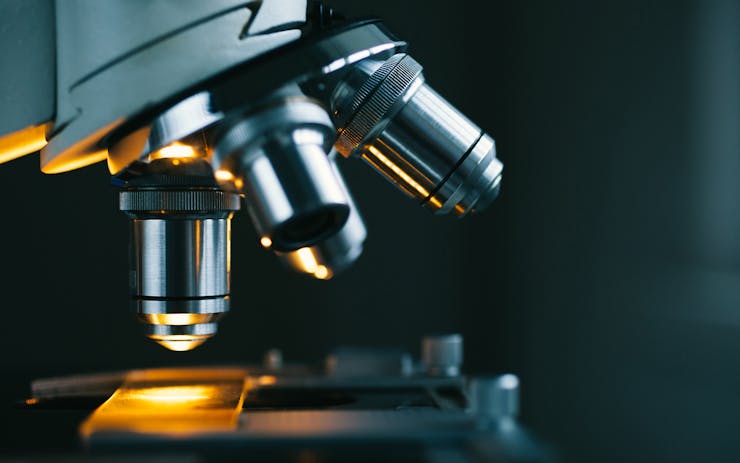The Top CBD Cannabis Studies of 2017
The past year was important for proponents of medical cannabis. Those seeking to remove cannabis’ Schedule I status are now armed with even more evidence for its medicinal and wellness benefits from a combination of human and rodent studies. From benefits in epilepsy, autism, and beyond, here are some of 2017’s biggest medical cannabis news stories. This installment covers insights relating to CBD, but tune in to the second part of this series for more discoveries uncovered in 2017.
Cannabidiol (CBD) passes stage 3 clinical trial for treatment of epilepsy in children.
Source: New England Journal of Medicine, May 2017
This one was big. One of the greatest limitations in the medicinal cannabis field is the lack of randomized double-blinded studies, the standard in clinical research. This limitation is often the basis of the opposition’s argument that there’s no strong evidence to support clinical cannabis use. But that argument was undermined by the successful trial of CBD treatment in children with epilepsy.
CBD reduced the median number of seizures each month by 39% compared to 13% for placebo-treated patients.
Scientists studied the effect of CBD (Epidolex developed by GW Pharmaceuticals) on epileptic seizures in patients with Dravet syndrome. Dravet syndrome is a severe epileptic childhood disorder caused by genetic mutation that reduces brain inhibition and leads to frequent and uncontrollable seizures. Traditional anti-epileptic medications are largely ineffective at preventing seizures in Dravet syndrome, but anecdotal reports from parents of children with the condition suggest that CBD-rich cannabis effectively reduces seizures.
The researchers found that orally-consumed CBD oil over a 14-week treatment period was an effective anti-epileptic treatment in these patients, reducing the median number of seizures each month by 39% compared to 13% for placebo-treated patients. Further, these anti-epileptic benefits were achieved with only minimal side effects, of which diarrhea and drowsiness were the most reported. While these could be problematic in their own right, they beat having seizures and many of the side-effects from traditional anti-epileptic strategies.
Because CBD was used as an add-on therapy to the patients’ other anti-epileptic medications, one of the limitations of this study was not being to identify if CBD on its own reduced seizures, or if its anti-epileptic abilities were through interaction with other medications.
Nonetheless, this study’s double-blinded design was a substantial improvement over earlier assessments and benefited from a large sample size (61 received CBD, and 59 received placebo). Previous CBD trials found that it effectively reduced seizures in other drug-resistant forms of epilepsy, but the conclusions of these studies were weakened by their open-label nature, which allowed patients and doctors to be aware they were taking CBD and permitted bias.
This is the largest and most successful clinical trial to-date to demonstrate the medicinal benefits of CBD, and it will likely convince many clinicians to consider CBD for treating the 20% of epileptic disorders that are poorly controlled by traditional anti-epileptic drugs.
Add autism to the list of CBD’s medicinal benefits.
Source: Proceedings of the National Academy of Sciences, October 2017
Shop highly rated dispensaries near you
Showing you dispensaries nearAutism is often the result of too little inhibition in the brain, which leads to heightened sensitivity to stimuli (such as lights, sounds, touch, and smells) and abnormal social behavior. Epilepsy can also result from too little brain inhibition, and it’s common for individuals on the severe end of the autism spectrum to also have epilepsy. Scientists then may study both epilepsy and autism that are caused by the same DNA mutation.
Soon after the exciting clinical data demonstrating CBD’s effectiveness at reducing seizures in children with drug-resistant epilepsy, University of Washington scientists published a report demonstrating CBD’s effectiveness in a mouse model of epilepsy and autism.
As described above, one of the limitations of the clinical study of CBD in patients with Dravet syndrome is that, for ethical reasons, patients remained on their anti-epileptic medications; CBD was used as an add-on therapy, leading skeptics to posit that CBD’s anti-epileptic effects were in fact mediated by an interaction between CBD and other medications. To assess if CBD had anti-epileptic effects on its own in drug-resistant epilepsy, scientists tested CBD’s effects in mice with the same genetic mutation as humans with Dravet syndrome.
CBD increased the mice’s preference for spending time interacting with other mice and reduced the number of social anxiety-like behaviors.
In these epileptic mice, scientists confirmed that CBD, by itself, was sufficient to reduce seizures. Further, it was revealed that CBD rescues deficits in brain inhibition by blocking the activity of a brain receptor called GPR55. Now that CBD’s anti-epileptic effects are better understood in the brain and have been observed in humans and rodents, there’s an especially compelling case for clinical use of CBD in treating drug-resistant epilepsies.
But it doesn’t end there.
In addition to epilepsy, children with Dravet syndrome and other epileptic disorders often have autism. Unfortunately, the phase III clinical trial of CBD’s efficacy on seizures wasn’t able to simultaneously address autism-like social deficits in these individuals. However, University of Washington scientists looked at CBD’s impact on autistic-like social deficits, and they revealed that CBD normalizes social behavior in mice. CBD increased the mice’s preference for spending time interacting with other mice and reduced the number of social anxiety-like behaviors. Critically, this improvement occurred even after the mice had undergone numerous seizures, which highlights its medicinal potential at any age.
This was the first controlled study to demonstrate CBD’s ability to treat autistic-like social behaviors. CBD’s ability to improve symptoms of autism, even if it’s used in late developmental stages or adulthood, provides strong justification for the first human clinical trial to test cannabis oil in the treatment of autism, which is currently being conducted in 120 Israeli patients.
Addressing 2016’s biggest health scare: Does CBD turn into THC in our stomach?
Source: Journal of Pharmaceutical and Biomedical Analysis, available online December 2017
In 2016, a report claiming that CBD gets converted to THC in the stomach raised fear among proponents and patients. CBD has been emerging as a powerful medicinal tool for treating numerous disorders in children, adolescents, and adults. However, if CBD were to be converted to THC, this could negatively impact brain development in children and adolescents and induce side effects in adults.
Since that report, many have stated the obvious: If CBD gets converted to THC, then patients that consume large doses of CBD should experience THC-like effects. But they don’t! This simple observation prompted many to speculate that the conversion of CBD to THC was an artifact of the experimental conditions which were conducted in a petri dish and not a living creature.
To address whether CBD gets converted to THC in a living animal, scientists in Italy dosed rats with a high concentration of CBD and measured cannabinoids in the blood. Neither THC nor its metabolites were detected. These findings support the conclusions from behavioral studies in humans and animals that CBD does not convert to THC in the stomach in any meaningful amount. So in 2018, rest assured that you can attain CBD’s medicinal benefits without the potential risk of THC exposure.
Eager for more of 2017’s most compelling cannabis research? Stay tuned for part two, where we dive into more good news brought forth by the scientists and researchers working boldly in the cannabis space.
Lead Image: Kkolosov/iStock





